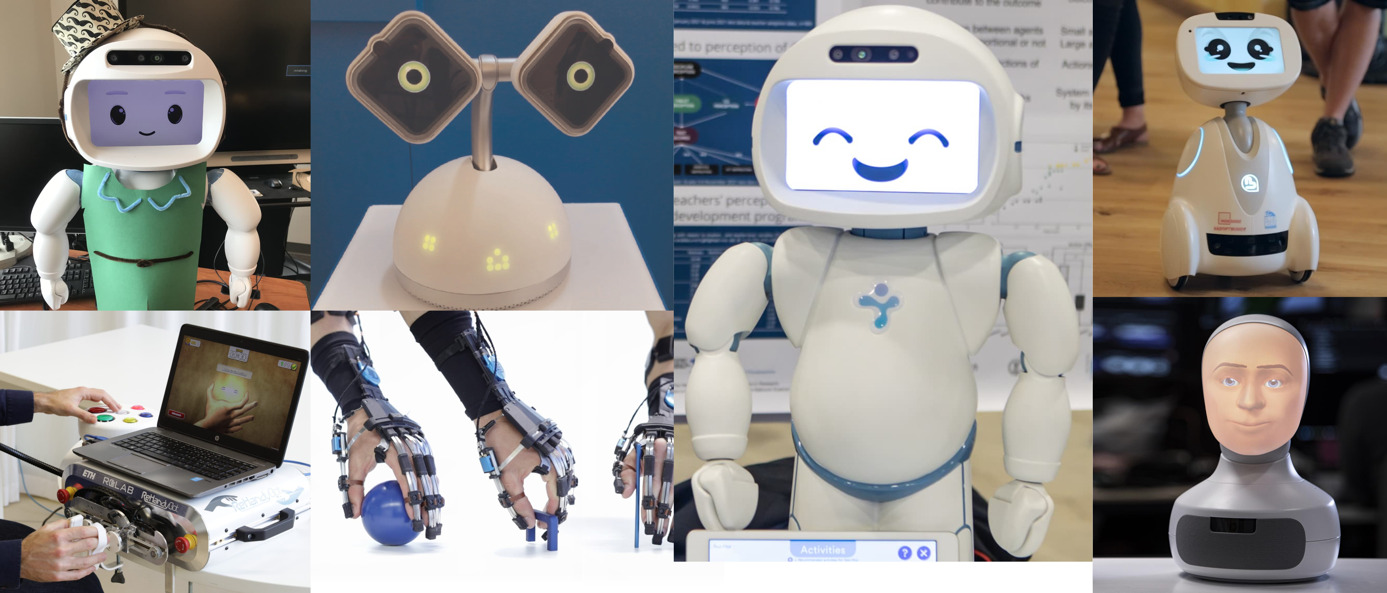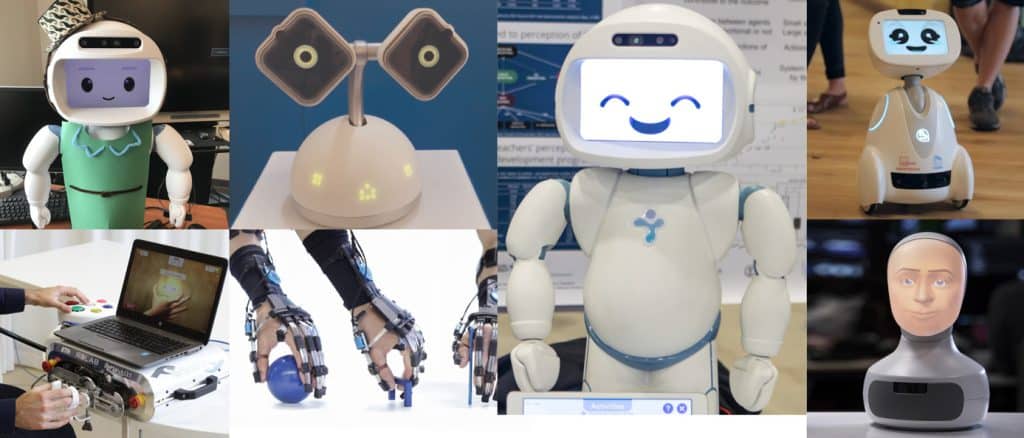Ai companions for the elderly can enhance their quality of life and care significantly. As people age, many of them face feelings of loneliness, social isolation, and lack of purpose.
This can result in cognitive decline, depression, and other health issues. An ai companion can help the elderly to have someone to talk to, play games with, and keep them motivated. Moreover, these devices can help in medication reminders, emergency alerts, and fall detection.
Ai companions provide personalized care based on the individual’s preferences and needs. They can improve the quality of life for the elderly by providing emotional support, keeping them engaged in their hobbies and interests, and providing access to information. In this article, we will explore the benefits of ai companions for the elderly, including how they can enhance their quality of life and care.

Credit: aiforgood.itu.int
Benefits Of Ai Companionship In Elder Care
Overview Of Ai Companionship Technology
Ai companionship technology has rapidly emerged in the elderly care sector, aimed at improving the quality of life for seniors. These companionship tools created by artificial intelligence are designed to assist older adults with daily tasks, provide emotional support, and also engage in stimulating conversations.
The ai companions are equipped with sensors and algorithms that enable them to learn and adopt the individual personalities and preferences of the seniors they interact with, making each experience unique.
Improved Social Interaction For Isolated Elderly Individuals
Social isolation can lead to numerous adverse effects on the physical and mental health of seniors. Ai companions can help to alleviate isolation among older individuals by providing them with an interactive experience that mimics human conversation. Through the use of voice recognition and dialogue generation technologies, ai companions can understand and respond to conversational cues, providing seniors with simulated social interaction.
This enhanced communication could reduce the occurrence of depression and anxiety among elderly individuals.
Benefits of ai companionship technology extend beyond socialization and engagement. These ai-companions can provide monitoring and assistance with medication and daily activities.
Monitoring And Assistance With Medication And Daily Activities
Seniors who require assistance with taking their medications can benefit from having an ai companion to remind them of their medication schedule, thus promoting medication adherence. Additionally, ai companions can help seniors with daily activities like reminding users of events, reminding them about their personal hygiene after their morning schedules, and carry on with some daily tasks like reading the news and guiding them on performing quick exercises.
Furthermore, ai technology can monitor physiological changes in seniors’ health, like blood pressure, heart rate, and body temperature. The information collected can be shared with medical professionals to provide timely and appropriate healthcare support.
Reduction Of Caregiver Burnout And Increased Efficiency In Care Provision
The care of elderly individuals is typically entrusted to family members or caregivers. However, caregiving can become daunting and overwhelming, putting a strain on the caregiver’s physical, mental, and emotional health, and increasing the risk of burnout. This is where ai companions can assist with the caregiving duties, reducing the workload and contributing to increased effectiveness and productivity.
The technology can also be used to send regular updates to family members or professional caregivers, helping them in keeping track of the senior’s progress, and taking related actions.
Ai companionship technology provides numerous benefits for seniors, by providing emotional support, engagement, and stimulation while assisting them with medication management, activity reminders, and monitoring their health status. Additionally, ai companionship technology can reduce stress, burnout, and increase efficiency, benefiting caregivers, professional healthcare providers, and family members alike.
Integration Of Ai Companionship Into Elder Care Services
Current Advancements In Ai Companionship Technology And Their Potential For Improving Elder Care Services
The integration of artificial intelligence (ai) companionship technology into elder care services holds great potential for enhancing the quality of life and care for the elderly. The current advancements in ai companionship technology are nothing short of extraordinary! Here are some of the latest innovations:
- Smart home virtual assistants that can help elderly people with hearing or vision loss
- Wearable devices that can monitor vital signs and detect changes in behavior
- Robotic companions that can provide emotional support and assistance with daily activities
- Ai-powered chatbots that can provide companionship and assistance with scheduling appointments or ordering groceries
The potential benefits of these technologies go far beyond just the provision of care and assistance to the elderly. They have the potential to revolutionize the way elderly people live and age in place.
Considerations For The Implementation Of Ai Companionship In Elder Care Environments
While ai companionship holds great promise for enhancing the quality of life and care for the elderly, there are some important considerations that must be taken into account when implementing these technologies in elder care environments. Here are some important factors to consider:
- Security and privacy concerns related to the collection and use of personal data
- The need for extensive testing and validation to ensure that these technologies are reliable, safe, and user-friendly
- The importance of involving elderly individuals in the design and development of ai companion technologies to ensure that they meet their unique needs and preferences
- The possibility of unintended consequences and negative outcomes, such as isolation from human interactions.
Potential Cost Savings And Increased Access To Quality Care Due To Ai Companionship Technology
The integration of ai companionship technology into elder care services has the potential to significantly reduce the cost of care and increase access to quality care for elderly individuals. Here are some potential cost savings and improved care outcomes:
- Reduced hospitalizations due to remote monitoring of vital signs and early detection of health problems
- Improved medication management through the use of ai-powered medication reminders and trackers
- Increased social connectedness and reduced isolation, leading to improved mental health and well-being
- Reduced burden on caregivers and improved caregiver satisfaction, leading to increased retention and quality of care.
Ai companionship technology represents a promising new frontier for elder care services. By carefully considering the key factors involved in the implementation of these technologies, we can ensure that they are used to their fullest potential, providing valuable support and care to the aging population.
Frequently Asked Questions For Ai Companions For The Elderly: Enhancing Quality Of Life And Care
How Do Ai Companions Help The Elderly?
Ai companions provide companionship, reminders for medications, and monitor physical and mental health. They also provide entertainment and assistance with daily tasks.
Are Ai Companions Effective In Reducing Loneliness?
Studies have shown that ai companions can reduce feelings of loneliness and improve mental health in elderly individuals. They provide social interaction and emotional support.
How Do Ai Companions Interact With Elderly Individuals?
Ai companions can interact with elderly individuals through voice and touch recognition technology. They can engage in conversation, respond to commands, and monitor health and wellness.
Conclusion
As the world’s population continues to grow and age, we need innovative and technological solutions to support our elderly population’s well-being. Ai companions hold significant potential in enhancing the quality of life and care for older adults. With ai companions, elderly individuals can lead a fulfilling life, with increased independence, socialization, and personalized care.
The technology’s ability to address older adults’ emotional and mental needs is a crucial aspect of maintaining their physical health. While ai companions are not a substitute for human interaction and care, they can play an integral role in augmenting the caregiving process.
As the technology advances further, we can expect ai companions to continue playing a vital role in improving elderly care. It is vital to embrace these technological advancements and leverage them to support our elderly population in leading a healthy and fulfilling life.

